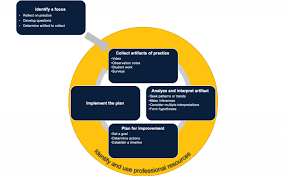Analyzing is the process of examining data, information, or a situation to understand it better. It is a critical skill that plays a vital role in various fields, including business, science, technology, and social sciences. Analyzing allows us to make informed decisions based on evidence and facts rather than assumptions or intuition.
In business, analyzing data is essential for identifying trends and patterns that can help companies make strategic decisions. For example, analyzing sales data can help companies determine which products are selling well and which ones are not. This information can then be used to adjust pricing or marketing strategies to increase revenue.
In science and technology, analyzing data is crucial for understanding complex systems and phenomena. For instance, analyzing genetic data can help researchers identify genes responsible for certain diseases or traits. This information can then be used to develop new treatments and therapies.
Analyzing also plays an essential role in social sciences such as psychology and sociology. Researchers use statistical analysis to study human behavior and identify patterns that can help us understand why people act the way they do.
Analyzing requires critical thinking skills such as observation, interpretation, evaluation, and inference. It also involves using tools such as statistics software or visualization tools to organize and interpret data effectively.
However, analyzing has its limitations. It is only as good as the quality of the data being analyzed. If the data is incomplete or inaccurate, the analysis will be flawed. Additionally, analysis requires time and resources that may not always be available.
In conclusion, analyzing is a critical skill that allows us to make informed decisions based on evidence rather than assumptions. It plays an essential role in various fields such as business, science, technology, and social sciences. While it has its limitations, it remains an invaluable tool for understanding complex systems and phenomena in our world today.
7 Commonly Asked Questions About Analyzing: Definitions, Usage, and Differences
- What is another word for in analyzing?
- What is a different word for analyzing?
- What do you mean analyzing?
- What is correct Analysing or analyzing?
- What is an example of analyzing?
- Is it Analysing or analyzing?
- What is the difference of analyzing and Analysing?
What is another word for in analyzing?
There are several synonyms for “analyzing” that can be used in different contexts. Some of these include:
– Examining
– Scrutinizing
– Studying
– Inspecting
– Evaluating
– Assessing
– Interpreting
Using these synonyms can help to add variety to your writing and avoid repetition. However, it is important to choose the word that best fits the context and meaning you are trying to convey.
What is a different word for analyzing?
There are several different words that can be used as synonyms for analyzing, depending on the context and the type of analysis being performed. Here are a few options:
- Examining
- Evaluating
- Scrutinizing
- Studying
- Interpreting
- Dissecting
- Breaking down
- Investigating
- Appraising
- Assessing
These words all convey the idea of closely examining something in order to understand it better or draw conclusions from it, much like analyzing does.
What do you mean analyzing?
Analyzing refers to the process of examining data, information, or a situation in order to understand it better. It involves breaking down complex information into smaller parts, identifying patterns and relationships between those parts, and drawing conclusions based on the evidence. Analyzing can be done using various methods such as statistical analysis, data visualization, and critical thinking skills. The goal of analyzing is to gain insights and knowledge that can be used to make informed decisions or solve problems.
What is correct Analysing or analyzing?
Both “analyzing” and “analysing” are correct spellings of the same word, but they are used in different regions.
“Analyzing” is the preferred spelling in American English, while “analysing” is the preferred spelling in British English.
So, it depends on which version of English you are using.
What is an example of analyzing?
An example of analyzing is examining financial data to identify trends and patterns. For instance, a business may analyze its sales data over a period of time to determine which products are selling well and which ones are not. This information can then be used to adjust pricing or marketing strategies to increase revenue. The analysis may involve using statistical tools such as regression analysis or visualization tools such as graphs and charts to present the data in a meaningful way. By analyzing the data, the business can make informed decisions that will help it achieve its goals and objectives.
Is it Analysing or analyzing?
Both “analyzing” and “analysing” are correct spellings of the word. However, “analyzing” is the more common spelling in American English, while “analysing” is more commonly used in British English.
What is the difference of analyzing and Analysing?
There is no difference in meaning between “analyzing” and “analysing”. The only difference is in spelling, with “analyzing” being the American English spelling and “analysing” being the British English spelling. Both spellings refer to the process of examining data, information, or a situation to understand it better.

No Responses